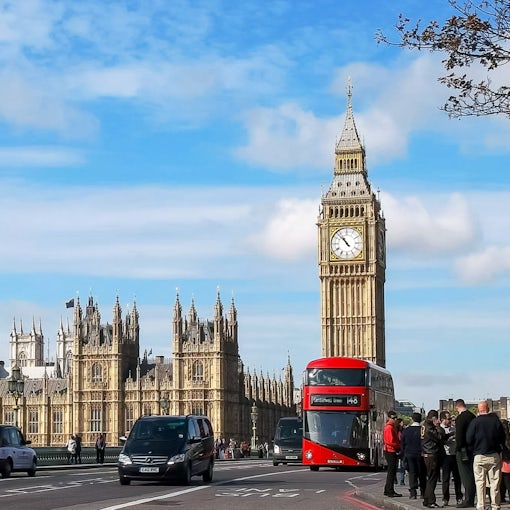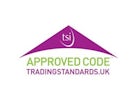Legal obligations as a landlord: there’s more to it than you may have thought. It’s not as simple as creating a tenancy agreement and collecting the rent each month – and failure to honour your responsibilities could result in fines of thousands of pounds. Here are some of the legal obligations as a landlord you should be aware of.
A transparent and fair private rental sector benefits everyone: landlords, tenants and the wider economy in general. That’s why we provide a managed lettings service that makes it easy for landlords to stay on top of their various legal obligations. Worryingly, many landlords simply aren’t aware of the full depth of their responsibilities – and the legal landscape can change quickly.
Thirteen is unlucky for some. But when it comes to these thirteen regulations, your fate is very much in your own hands.
1. Health and safety
The landlord is obligated to ensure that the fire, electric and gas equipment within the property is safe for the tenants. This means that landlords must ensure that gas equipment is safely installed and annually checked by a Gas Safe Registered engineer and a copy of the gas safety check should be supplied to the tenant at the start of the tenancy. With electrics, it’s vital that landlords ensure the electrical system is safe, along with all the appliances they supply, such as cookers or kettles.
It’s a legal obligation as a landlord to provide a smoke alarm on each storey and a carbon monoxide alarm in any room with a solid fuel burning appliance like a coal fire, for instance. However on 1st May 2018 it was announced that the government is launching a review into whether all homes across England should have a carbon monoxide alarm installed next to any type of heating appliance – including those that use gas or oil.
Landlords must also make sure escape routes are kept accessible and that any supplied furniture is fire safe.
>> Do rental properties need a carbon dioxide alarm?
2. The right type of tenancy agreement
The landlord has an obligation to choose the right tenancy agreement for the property and its tenants. In fact it’s one of the most important things to get right: failure to do so can lead to all kinds of legal complications if you have to evict your tenants. Although the majority of tenancies are Assured Shorthold Tenancy (AST), other agreements include Excluded Tenancy, Assured Tenancy, Non-Assured Tenancy, Regulated Tenancy and Company Let. It’s important that the tenancy agreement is well-chosen and suited to the property. If you’re not sure, feel free to get in touch with me directly: luke.clarke@belvoir.co.uk | 01780 723333.
3. Deposit schemes
All tenant deposits must be protected under one of the three tenancy deposit schemes. After being given the deposit it should be entered into a scheme within 30 days and the tenant should be provided with the relevant information within 30 days after that. Failure to protect the deposit or notify your tenants can result in fines of up to three times the deposit amount as well as the inability to issue a Section 21 (eviction notice).
4. Rent checks
As of February 2016 landlords have to make sure that their tenants have the legal right to live in the UK. This involves checking passports or VISA paperwork – failure to do so can lead to fines of up to £3,000.
5. Record keeping
If you need to prove you’ve been following the law or need help resolving a dispute, good records are vital. At a minimum it’s a good idea to keep a rent ledger, a copy of the lease, copies of correspondence and documents related to the deposit as well as repair records and receipts. This will give you a good base of evidence to demonstrate that your actions have been fair and lawful if something unexpected happens. (Believe us, the unexpected happens way more than you would like to think.)
6. Access to property
From time to time it’s only natural that you’ll need to access your property to make repairs and inspections. In these cases, you have to give at least 24 hours of notice and arrange a convenient time with the tenants. You should never enter the property without the tenants’ permission.
7. Access points in shared buildings
Speaking of access, you are also responsible for communal access areas in an apartment block – such as the stairs or fire exits. That applies whether you own the apartment block or otherwise. If you are letting a property within an apartment, you have a vested interest in making sure the communal areas are accessible, safe and well-maintained.
8. Statutory maintenance
Landlords are required to keep the property maintained and in working order inside and out. This especially applies to problems with the roof, chimneys, walls, guttering and drains. When working with contractors, it’s your responsibility to make sure they are appropriately qualified and insured. If one of your tenants is injured as a result of contractor negligence, you are responsible, not the contractor.
9. Energy efficiency
From the 1st of April 2018 it’s required that privately rented properties must have a minimum energy performance rating of E on an Energy Performance Certificate. This rule applies to all new tenancies from April and existing tenancies from April 2020. Failure to comply can result in fines of up to £4,000.
10. How to Rent guide
Before the beginning of a new tenancy you must give your tenants either a hard copy or an emailed copy of the government’s ‘How to Rent’ guide. This tells your tenants about yours and their responsibilities to each other during the tenancy. Failure to produce this will mean that you cannot issue a Section 21.
11. Taxes
Income from renting properties must be reported to HMRC. Not doing so can lead to fines and imprisonment. Thankfully many of your expenses as a landlord are tax deductible, which will reduce your overall tax.
12. Licensing
Some areas of the UK require landlords to obtain a ‘landlord licence’ before they can let their properties. These areas are selected based on low demand for housing and significant or persistent anti-social behaviour problems. To qualify you must demonstrate that you act within the law and manage properties correctly. Renting without one of these licences can results in fines of up to £20,000.
13. Legionella risk assessment
Legionella is a form of pneumonia that is caused by inhaling small droplets of contaminated water that contain the legionnaires bacteria. Sadly, it can be fatal. Landlords are required to ensure their properties are safe from health hazards that could aid the spread of legionella. In practice, a simple assessment of the water and heating supply of the property will most likely show a low risk with no further investigation needed. If changes are made to the water system, it would be wise to re-review.
Need some help?
Of course, being a landlord is about running a profitable and efficient business. Not just keeping up with regulations. But doing so can eat in to your time significantly. Need some help? Here at Belvoir Peterborough we have more than £200m of property under our management and can help you maximise your profits and provide a seamless service to your tenants that’s fully compliant with the various legal obligations you have as a landlord.
If you would like an informal chat about your property, please feel free to contact me directly.
Luke Clarke
Lettings Manager
01780 723333
luke.clarke@belvoir.co.uk
Luke Clarke is Belvoir Stamford Lettings Manager. Luke has over 12 years of property experience and has built up unrivalled expertise in the lettings industry and remains a tried and tested advisor for landlords who not only intrust Luke with the complexities of day to day property management but also to assist them with the ongoing development of their property portfolio.
You may also be interested in:








